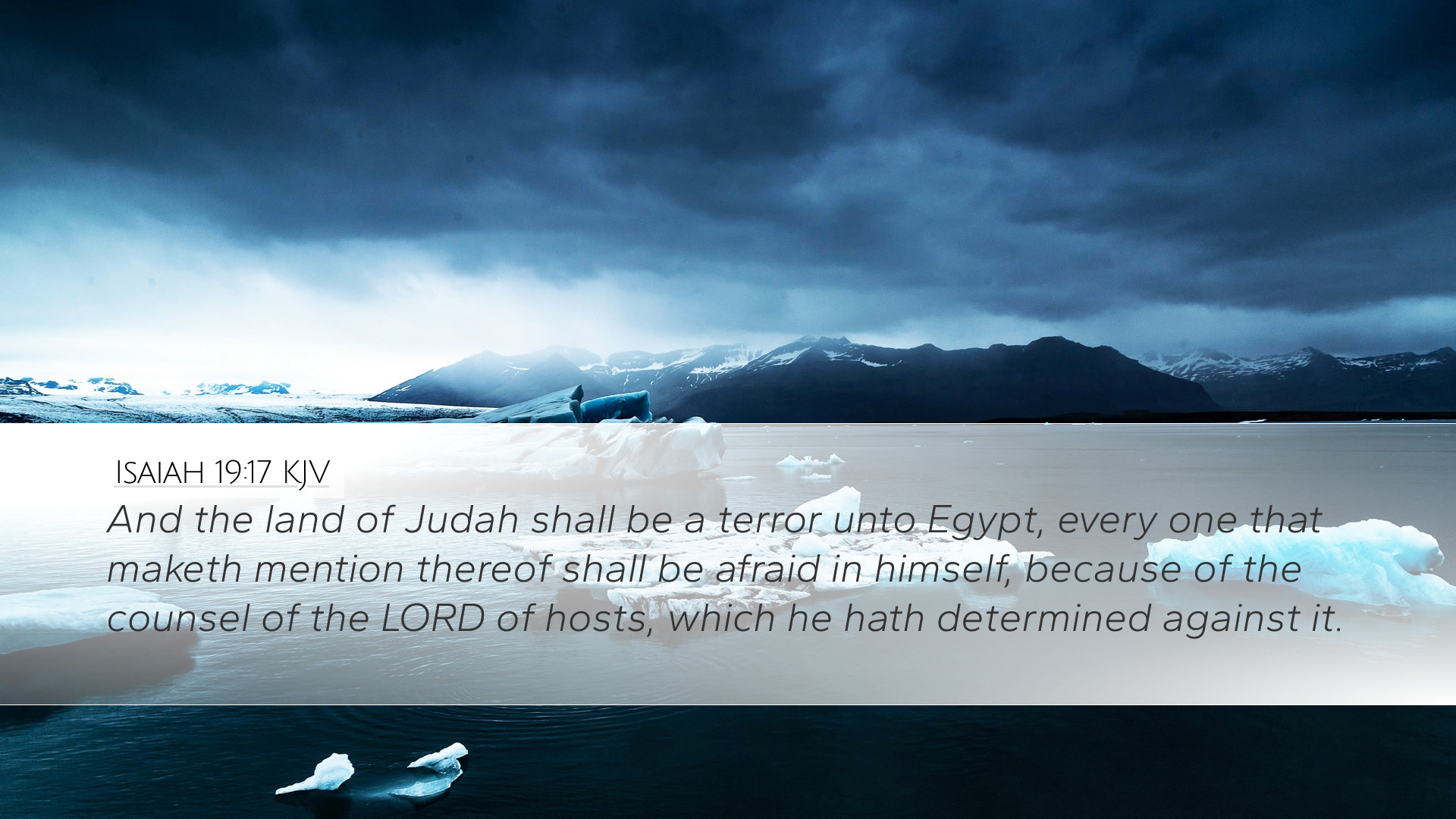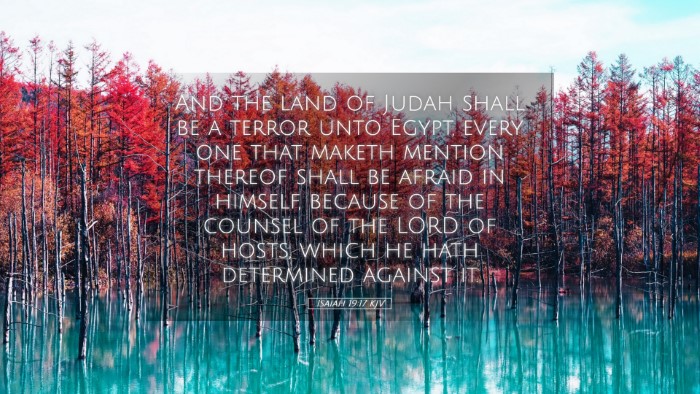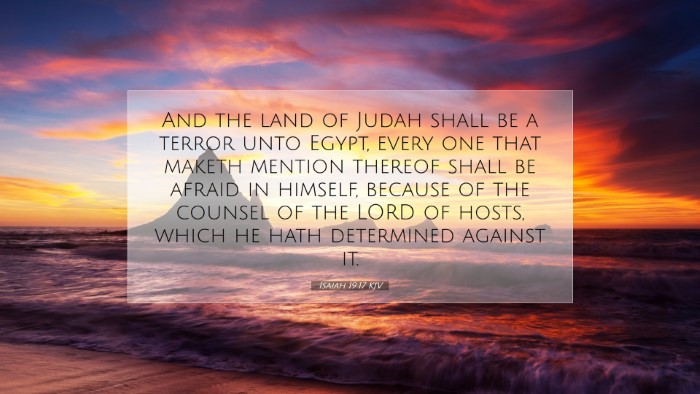Commentary on Isaiah 19:17
Isaiah 19:17 (ESV): "And the land of Judah will become a terror to the Egyptians; everyone to whom it is mentioned will fear because of the purpose that the LORD of hosts has purposed against them."
Introduction
The verse from Isaiah 19:17 presents a profound insight into the relationship between Egypt and Judah, particularly in the context of God’s sovereignty and judgment. It signifies a reversal of power dynamics and the fear that God’s purposes invoke. Commentaries from renowned scholars serve to unravel the theological, historical, and practical implications of this passage.
Historical Context
According to Matthew Henry, this passage is rooted in the geopolitical tensions of the time. Egypt, once a dominant force, faces the prospect of fear from Judah—a nation it formerly regarded with disdain. Henry suggests that Isaiah’s prophecies, including this verse, reflect the imminent judgment upon Egypt due to their idolatry and oppression of Israel.
- Egypt's Idolatries: The Egyptians had long relied on their gods and military might. Henry notes that the downfall predicted is a divine act to demonstrate the impotence of these idols.
- The Sovereignty of God: The ultimate purpose of God reigns supreme, subverting human confidence and shedding light on His authority over nations.
Theological Implications
Albert Barnes focuses on the theological dimension of this verse. He interprets the phrase "the land of Judah will become a terror" as signifying that Judah's status will transform, compelling even states like Egypt to recognize the supremacy of the God of Israel.
- Judah as an Instrument of Fear: Barnes explains how God's purpose leads to unforeseen consequences, transforming Judah—a once oppressed nation—into a source of dread for powerful nations.
- Fear of Divine Retribution: This fear is not solely based on military prowess but arises from the awareness of divine judgment. As noted in biblical history, nations feared Israel not only for its army but for the God behind them.
Interpretative Insights
Adam Clarke offers a rich perspective on the interpretative nuances of this verse. He emphasizes the prophetic nature of Isaiah’s words and their significance for both ancient and contemporary readers.
Esoteric Understanding
Clarke suggests that the terror spoken of in this verse could also metaphorically relate to the fear of the Gospel, which, in a broader context, spreads globally, invoking fear in those opposed to God’s purposes.
Practical Applications
Clarke’s commentary underscores the importance of recognizing God’s hand in human affairs. The passage challenges contemporary believers to reflect on their relationship with God and the potential ramifications of forsaking divine paths.
Prophecy and Its Fulfillment
The prophetic nature of the text calls attention to God’s enduring plan for all nations, including Egypt. As Clarke remarks, God’s purposes remain irrevocable and will unfold as He directs.
Call to Reflection
This verse serves as a clarion call for believers today. The fear that Judah inspires in Egypt encapsulates the truth that God's people should be a reflection of His character, serving as a testament to His greatness and sovereignty.
- A Call for Faithfulness: Pastors and theologians are reminded to encourage their congregations not to underestimate the role they play in manifesting God’s glory.
- A Reminder of God’s Sovereignty: Students of scripture are invited to explore how this passage aligns with the broader narrative of scripture, illustrating God's governance over both Israel and foreign nations.
- Encouragement in Persecution: In challenging times, believers can find solace in the assurance that, while they may be marginalized, their identity in Christ will ultimately bring about reverence among nations.
Conclusion
Isaiah 19:17 stands as a multifaceted scripture that intertwines historical narrative with profound theological insights. The reflections and interpretations by Matthew Henry, Albert Barnes, and Adam Clarke prompt us to ponder God’s unwavering authority and the transformative impact of His purpose. For pastors, students, and scholars alike, this verse is an invitation to deeper explorations of God’s righteousness and the reverberations of His justice across nations.


